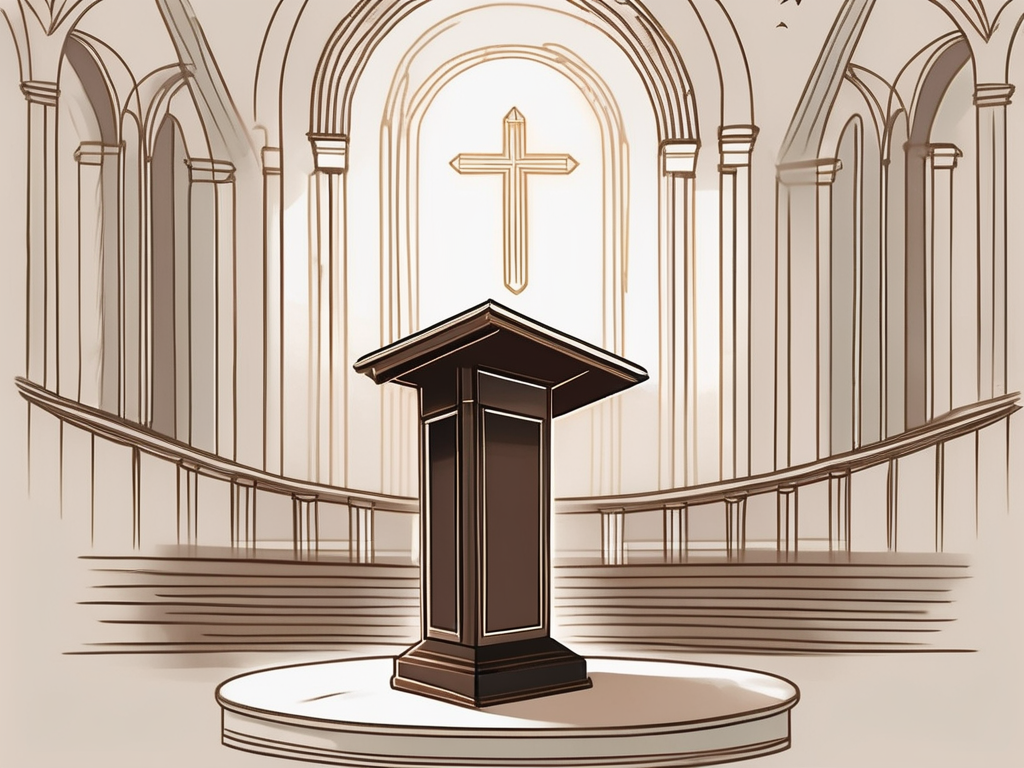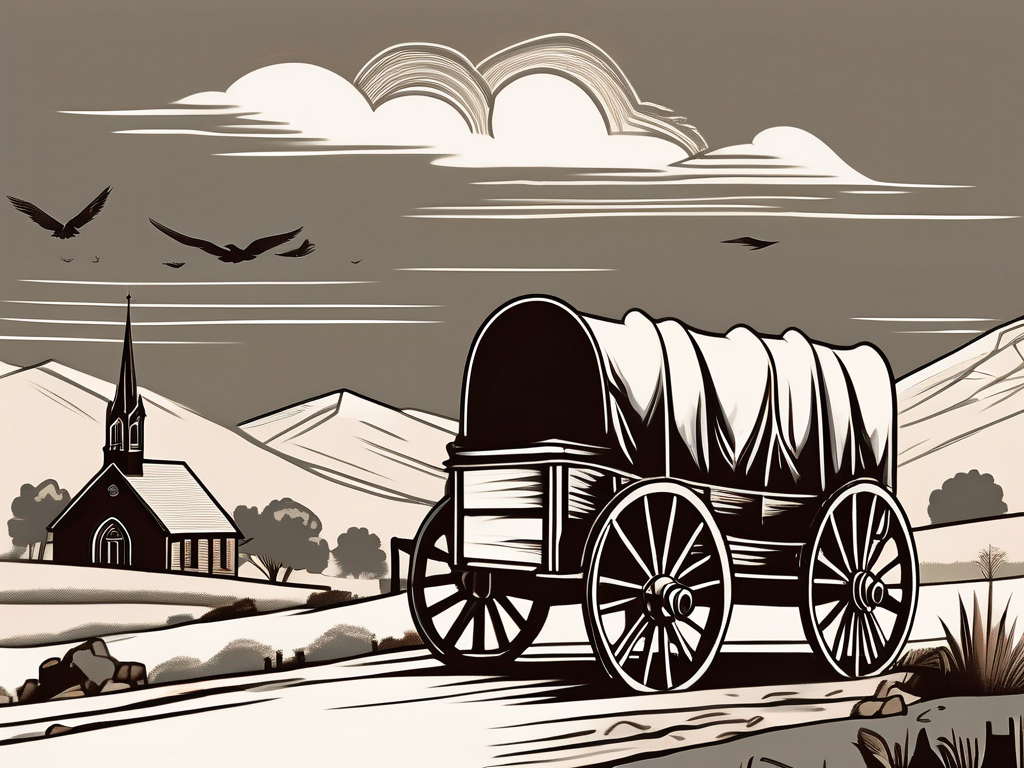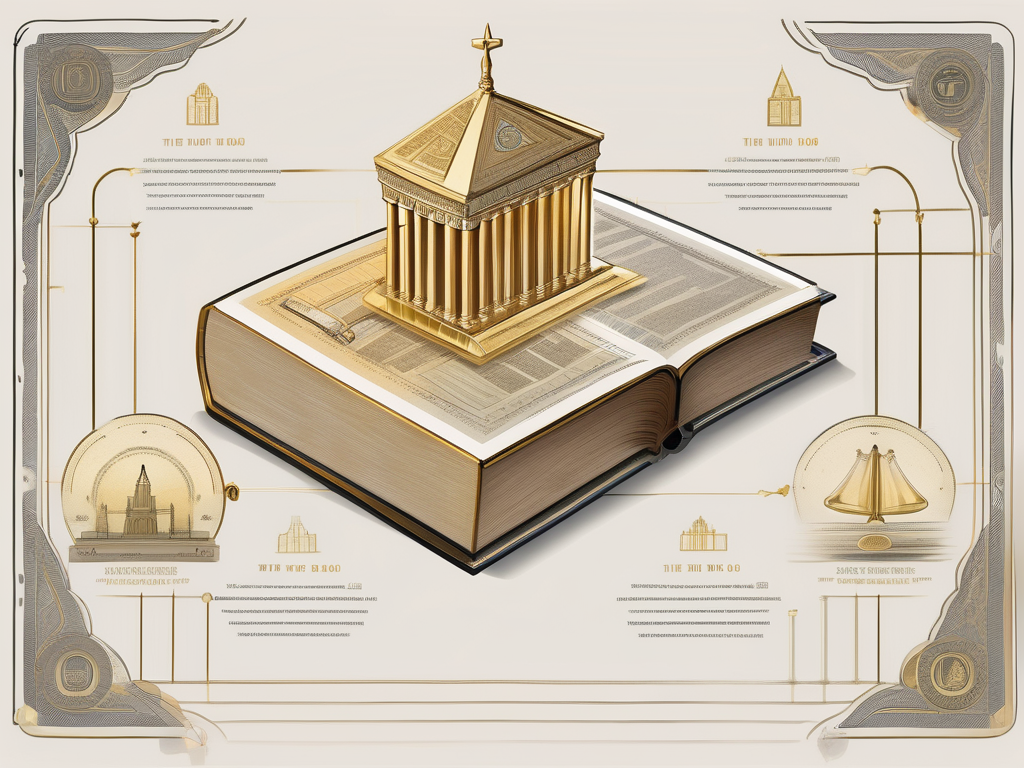The Mormon Gospel is at the heart of the beliefs and teachings of The Church of Jesus Christ of Latter-day Saints. It encompasses a wide range of principles, doctrines, and practices that are central to the faith of its members. Understanding the Mormon Gospel is essential for those seeking to learn more about this unique religious tradition.
Understanding the Mormon Gospel
Before delving into the specifics of the Mormon Gospel, it’s important to explore its origins. The early history of The Church of Jesus Christ of Latter-day Saints is marked by a series of divine revelations received by its founder, Joseph Smith. These revelations formed the basis of the Mormon Gospel and laid the groundwork for the beliefs and practices of the Church.
Joseph Smith, a young man living in upstate New York in the early 19th century, was seeking answers to profound questions about the nature of God and the purpose of life. In the spring of 1820, he claimed to have had a vision in which he saw God the Father and Jesus Christ. This experience, known as the First Vision, marked the beginning of a new religious movement.
Following the First Vision, Joseph Smith continued to receive additional revelations and visitations from heavenly messengers. One of the most significant of these encounters occurred in 1823 when an angel named Moroni appeared to him. Moroni revealed the existence of an ancient record engraved on golden plates, which contained the religious history of an ancient American civilization.
Over the course of several years, Joseph Smith translated the golden plates by the power of God. The resulting text, known as the Book of Mormon, is considered by Mormons to be another testament of Jesus Christ, alongside the Bible. It provides insight into the teachings of ancient prophets and serves as a guide for modern-day followers of the Mormon Gospel.
Key principles of the Mormon Gospel include faith in Jesus Christ, repentance, baptism by immersion for the remission of sins, and receiving the gift of the Holy Ghost. These principles are seen as stepping stones on the path to eternal life and play a vital role in the lives of Mormons.
For Mormons, faith in Jesus Christ is not merely a belief in His existence, but a deep trust and reliance on His teachings and Atonement. This faith motivates them to strive for personal righteousness and to follow the example of Christ in their daily lives.
Repentance is another fundamental principle of the Mormon Gospel. It involves recognizing and acknowledging one’s sins, feeling genuine remorse, and making a sincere effort to change and improve. Mormons believe that through repentance, individuals can receive forgiveness and be reconciled with God.
Baptism by immersion is a significant ordinance in the Mormon Gospel. It symbolizes the cleansing of sins and the commitment to follow Jesus Christ. Mormons believe that baptism is necessary for salvation and that it should be performed by proper authority within the Church.
Receiving the gift of the Holy Ghost is viewed as a crucial step in the Mormon Gospel. It is believed to be a spiritual endowment that provides guidance, comfort, and inspiration. Mormons strive to live worthy of the constant companionship of the Holy Ghost, seeking its influence in their daily lives.
These principles of faith, repentance, baptism, and receiving the Holy Ghost are not isolated events but ongoing processes in the lives of Mormons. They are seen as essential elements in the journey towards eternal life and becoming more like Jesus Christ.
In addition to these key principles, the Mormon Gospel encompasses a wide range of doctrines and practices that shape the lives of its followers. These include a belief in modern-day prophets and ongoing revelation, the importance of family and eternal marriage, the concept of a pre-mortal existence, and the potential for continued progression and growth in the afterlife.
The Mormon Gospel is a rich and complex belief system that has inspired millions of people around the world. Its teachings and practices provide a framework for individuals to find purpose, meaning, and direction in their lives as they strive to follow the example of Jesus Christ and build a relationship with God.
The Role of Jesus Christ in the Mormon Gospel
Central to the Mormon Gospel is the belief in the Atonement of Jesus Christ. Mormons see Christ as their Savior and Redeemer, who willingly suffered for the sins of humanity and made it possible for all to be forgiven and reconciled with God. The Atonement is viewed as a deeply personal and transformative event that enables individuals to overcome their imperfections and grow closer to God.
When we delve deeper into the concept of the Atonement, we find that it encompasses not only the suffering and death of Jesus Christ but also His infinite love and mercy. Mormons believe that through His Atonement, Christ took upon Himself the sins, pains, and sorrows of all people, experiencing the full weight of human suffering. This act of selfless sacrifice demonstrates the depth of His love for each individual and His desire to help them find peace and happiness.
Furthermore, the Atonement is not a one-time event but an ongoing process that extends throughout the mortal journey of every person. Mormons believe that as individuals exercise faith in Jesus Christ, repent of their sins, and strive to follow His teachings, they can access the power of the Atonement in their lives. This power enables them to change, grow, and become more like their Savior.
Another key aspect of the Mormon Gospel is the belief in the literal Resurrection of Jesus Christ. Mormons hold that Christ’s Resurrection is not merely symbolic but a physical reality, demonstrating His triumph over death and providing hope for all mankind.
When we contemplate the Resurrection, we are reminded of the eternal nature of the human soul. Mormons believe that just as Jesus Christ was resurrected, all individuals will be resurrected and receive immortal, perfected bodies. This belief brings comfort and reassurance, as it affirms that death is not the end but a gateway to a glorious future.
The Resurrection also serves as a testament to the divinity of Jesus Christ. Mormons view His Resurrection as a miraculous event that validates His role as the Son of God and the Savior of the world. It is through His Resurrection that Christ conquered sin and death, providing a way for all people to overcome the effects of the Fall and find eternal life.
Moreover, the Resurrection is not limited to a distant future but has practical implications for the present. Mormons believe that through the power of the Resurrection, individuals can find hope, strength, and healing in their daily lives. The knowledge that Christ has overcome death instills a sense of courage and resilience, enabling believers to face challenges with confidence and trust in God’s plan.
In conclusion, the role of Jesus Christ in the Mormon Gospel is multifaceted and profound. His Atonement and Resurrection form the foundation of Mormon beliefs, offering redemption, transformation, and eternal hope. Through His infinite love and sacrifice, Jesus Christ invites all individuals to come unto Him, find peace, and experience the abundant blessings of the Gospel.
The Book of Mormon: Another Testament of Jesus Christ
The Book of Mormon is a sacred scripture in the Mormon tradition and is considered to be another testament of Jesus Christ. It complements the Bible and provides additional insight into the teachings and ministry of Jesus Christ. The Book of Mormon tells the story of ancient inhabitants of the American continent and their interactions with God.
The Book of Mormon is divided into several books, each containing specific teachings and narratives. These books include the Book of Nephi, the Book of Alma, the Book of Helaman, and many others. Each book offers a unique perspective and contributes to the overall narrative of the ancient American civilizations.
One of the central themes of the Book of Mormon is the importance of faith in Jesus Christ. The book teaches that through faith, individuals can receive forgiveness of sins and experience a personal relationship with the Savior. It emphasizes the need for repentance and turning to Christ for redemption.
In addition to faith and repentance, the Book of Mormon also highlights the significance of good works. It teaches that faith without works is dead and encourages readers to actively serve and help others. The book provides examples of individuals who lived righteous lives and made a positive impact on their communities.
Throughout the Book of Mormon, there are numerous prophecies that foretell the coming of Jesus Christ and his ministry among the ancient American people. These prophecies serve as a testament to the divinity of Christ and his role as the Savior of all mankind. They also provide hope and assurance to readers that God is aware of their individual circumstances and has a plan for their salvation.
Alongside the prophecies, the Book of Mormon contains sermons delivered by prophets and leaders of the ancient American civilizations. These sermons address various topics such as the importance of keeping God’s commandments, the consequences of wickedness, and the blessings that come from living a righteous life. The sermons offer guidance and counsel to readers, encouraging them to live according to God’s teachings.
Moreover, the Book of Mormon includes moral teachings that are applicable to followers of the Mormon Gospel today. It provides principles for living a virtuous and honorable life, promoting values such as honesty, integrity, and compassion. The book serves as a guide for individuals seeking to align their lives with the teachings of Jesus Christ.
In conclusion, the Book of Mormon is a rich and expansive scripture that offers a unique perspective on the life and teachings of Jesus Christ. It provides a detailed account of the ancient American civilizations and their interactions with God. Through its teachings on faith, repentance, good works, prophecies, sermons, and moral principles, the Book of Mormon continues to inspire and guide individuals in their spiritual journey.
The Plan of Salvation in the Mormon Gospel
The Mormon Gospel encompasses a comprehensive understanding of the Plan of Salvation. This plan teaches that human beings existed as spiritual beings with God before coming to Earth. Earthly life is seen as a crucial part of our eternal progression, offering opportunities for growth, learning, and making choices.
The Mormon Gospel teaches that after death, individuals will be reunited with their physical bodies through the Resurrection. The faithful will then undergo a judgment, and those who have followed the principles of the Mormon Gospel will have the opportunity to receive eternal life in the presence of God.
Within the Mormon Gospel, the Plan of Salvation is intricately woven with the concept of agency. Agency refers to the ability to make choices and act according to one’s own free will. It is believed that God has given each individual the gift of agency, allowing them to make decisions and learn from the consequences of their choices.
During their time on Earth, Mormons believe that individuals are given the opportunity to exercise their agency and make choices that align with the teachings of the Mormon Gospel. These choices include following commandments, serving others, and seeking personal revelation through prayer and scripture study.
Through the experiences and challenges of mortal life, Mormons believe that individuals can learn and grow, ultimately progressing towards becoming more like God. This process of growth and progression is often referred to as “eternal progression” and is seen as a fundamental aspect of the Plan of Salvation.
After death, Mormons believe that individuals will be resurrected, meaning that their spirits will be reunited with their physical bodies. This resurrection is seen as a necessary step in the Plan of Salvation, as it allows individuals to continue their eternal progression in a perfected state.
Following the resurrection, Mormons believe that individuals will face a judgment. This judgment is not meant to be a fearful or punitive experience, but rather an opportunity for individuals to account for their actions and choices during their earthly lives. It is believed that God, who is both just and merciful, will judge each person according to their desires, intentions, and the knowledge they had during their mortal life.
For those who have faithfully followed the principles of the Mormon Gospel, the judgment will result in the opportunity to receive eternal life in the presence of God. This eternal life is seen as the ultimate goal of the Plan of Salvation, where individuals can continue to progress, learn, and experience joy and fulfillment in the presence of their Heavenly Father.
Overall, the Plan of Salvation in the Mormon Gospel offers a comprehensive framework for understanding the purpose of life, the role of agency, and the potential for eternal progression. It provides hope and guidance for Mormons as they navigate the challenges and joys of mortal existence, ultimately aiming to bring individuals closer to God and the eternal blessings He has in store for His children.
The Mormon Gospel and Modern Revelation
A distinguishing feature of the Mormon faith is the belief in modern revelation. Mormons believe that God continues to speak to His children through living prophets and apostles. These leaders are seen as the mouthpiece of God and provide guidance, counsel, and direction for the Church.
The concept of continuing revelation is an important aspect of the Mormon Gospel. It reflects the belief that God’s truths and principles are not confined to ancient scriptures but are ongoing and applicable to modern times. This belief in ongoing divine communication ensures that the Mormon Gospel remains relevant and adaptable to the changing needs and circumstances of its members.
In closing
Understanding the Mormon Gospel involves delving into its origins, exploring key principles and practices, and recognizing the central role of Jesus Christ in Mormon theology. The belief in the Book of Mormon as another testament of Jesus Christ and the comprehensive Plan of Salvation further shape the Mormon Gospel. Additionally, the concept of modern revelation demonstrates the dynamic nature of this faith and its ongoing connection with the divine. By examining all these elements, one can gain a deeper understanding of What the Mormon Gospel truly entails.












